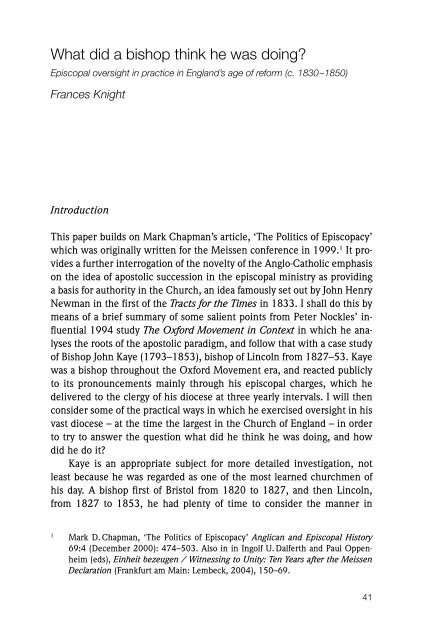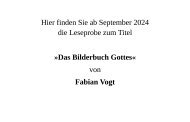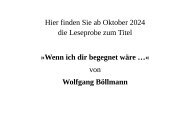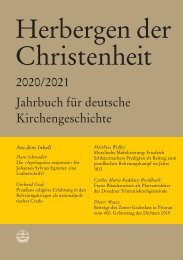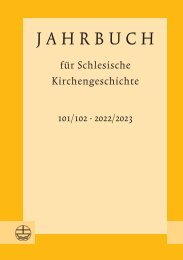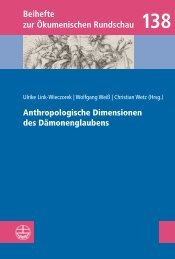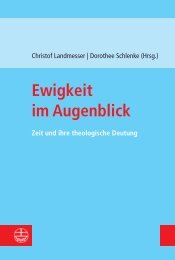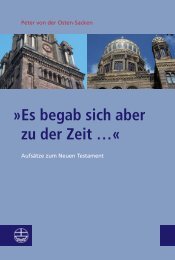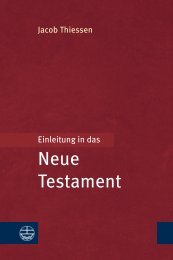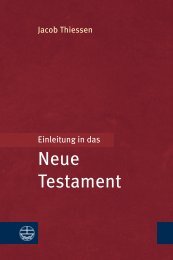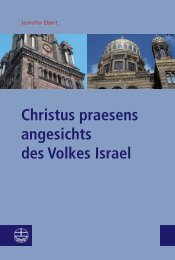Mark Chapman | Matthias Grebe | Friederike Nüssel | Frank-Dieter Fischbach (Eds.): Towards Interchangeability (Leseprobe)
This book examines how the practice of episcopacy in the Church of England and the EKD affects the claim that the ‘historic episcopate’ is a necessary condition for ‘the full interchangeability of ministers’. It addresses four questions relating to the practice of oversight: How have different forms of oversight sought to maintain the apostolic ‘historic’ faith in history and today? How does the exercise of authority within contemporary societies relate to the pre-modern ideas expressed in the idea of historic episcopate? How has the practice of oversight changed in the light of demographic changes and declining levels of church membership? What are the implications of synodical government and shared oversight for the concept of ‘historic episcopate’? The book’s goal is to explore whether an interdisciplinary analysis of episcopacy can assist the churches in establishing a new understanding of the “historic episcopate”.
This book examines how the practice of episcopacy in the Church of England and the EKD affects the claim that the ‘historic episcopate’ is a necessary condition for ‘the full interchangeability of ministers’. It addresses four questions relating to the practice of oversight: How have different forms of oversight sought to maintain the apostolic ‘historic’ faith in history and today? How does the exercise of authority within contemporary societies relate to the pre-modern ideas expressed in the idea of historic episcopate? How has the practice of oversight changed in the light of demographic changes and declining levels of church membership? What are the implications of synodical government and shared oversight for the concept of ‘historic episcopate’?
The book’s goal is to explore whether an interdisciplinary analysis of episcopacy can assist the churches in establishing a new understanding of the “historic episcopate”.
Create successful ePaper yourself
Turn your PDF publications into a flip-book with our unique Google optimized e-Paper software.
What did a bishop think he was doing?<br />
Episcopal oversight in practice in England’s age of reform (c. 1830–1850)<br />
Frances Knight<br />
Introduction<br />
This paper builds on <strong>Mark</strong> <strong>Chapman</strong>’s article, ‘The Politics of Episcopacy’<br />
which was originally written for the Meissen conference in 1999. 1 It provides<br />
a further interrogation of the novelty of the Anglo-Catholic emphasis<br />
on the idea of apostolic succession in the episcopal ministry as providing<br />
a basis for authority in the Church, an idea famously set out by John Henry<br />
Newman in the first of the Tracts for the Times in 1833. I shall do this by<br />
means of a brief summary of some salient points from Peter Nockles’ influential<br />
1994 study The Oxford Movement in Context in which he ana -<br />
lyses the roots of the apostolic paradigm, and follow that with a case study<br />
of Bishop John Kaye (1793–1853), bishop of Lincoln from 1827–53. Kaye<br />
was a bishop throughout the Oxford Movement era, and reacted publicly<br />
to its pronouncements mainly through his episcopal charges, which he<br />
delivered to the clergy of his diocese at three yearly intervals. I will then<br />
consider some of the practical ways in which he exercised oversight in his<br />
vast diocese – at the time the largest in the Church of England – in order<br />
to try to answer the question what did he think he was doing, and how<br />
did he do it?<br />
Kaye is an appropriate subject for more detailed investigation, not<br />
least because he was regarded as one of the most learned churchmen of<br />
his day. A bishop first of Bristol from 1820 to 1827, and then Lincoln,<br />
from 1827 to 1853, he had plenty of time to consider the manner in<br />
1<br />
<strong>Mark</strong> D. <strong>Chapman</strong>, ‘The Politics of Episcopacy’ Anglican and Episcopal History<br />
69:4 (December 2000): 474–503. Also in in Ingolf U. Dalferth and Paul Oppenheim<br />
(eds), Einheit bezeugen / Witnessing to Unity: Ten Years after the Meissen<br />
Declaration (<strong>Frank</strong>furt am Main: Lembeck, 2004), 150–69.<br />
41


